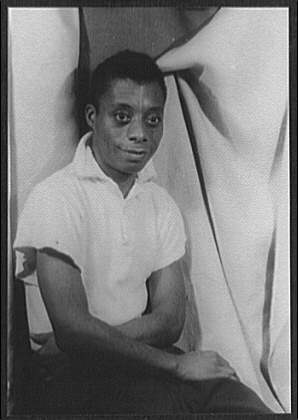Novelist, essayist, and social critic James Baldwin was born on August 2, 1924, in Harlem. At 14, he was in training to become a Pentecostal preacher, but by 17 he had become disillusioned with Christianity. Troubled by the racism he encountered in America, he moved to France when he was 24, where he wrote his first book, the semi-autobiographical Go Tell It on the Mountain. Later works include Giovanni’s Room, known for its frank depiction of homosexuality, and a collection of essays, The Fire Next Time. Eventually known as a key voice in the Civil Rights Movement, Baldwin died in France in 1987. Read more about Baldwin’s life and hear his voice in this biography from the Library of Congress.
Preview and share with students all or parts of Baldwin’s 1963 essay “A Talk to Teachers.” Ask students to identify Baldwin’s main contentions about race relations in America and think critically about connections they see to other texts (such as poems, books, or films) and to contemporary social issues. Then invite students to write a letter to Baldwin responding to his ideas and how they see them resonating with the present.
Dig deeper into Baldwin’s “A Region in My Mind” with these discussion questions from ReadWriteThink.org.
“The act of watching Coates be a pupil of Baldwin’s writing and a careful examiner of his own body of work became a way for students to observe the ways writing can be cyclical, cathartic, and catalytic.” Read more in “Sourcing the Imagination: Ta-Nehisi Coates’s Work as a Praxis of Decolonization.”
In this blog post, Millie Davis shares her reactions to Barry Jenkins’ film rendition of James Baldwin’s If Beale Street Could Talk and how it led her to think about the many African American stories that are part of school curricula, how they’re often challenged and censored from it, and how they shouldn’t be.
A panel including Aisha Karefa-Smart, Nicholas Boggs and Jason Reynolds explored the only children’s book ever written by James Baldwin and his literary legacy. “Little Man, Little Man,” originally published in 1976, with a 2018 re-release.
Curious about the NCTE and Library of Congress connection? Through a grant announced recently by NCTE Executive Director Emily Kirkpatrick, NCTE is engaged in new ongoing work with the Library of Congress, and “will connect the ELA community with the Library of Congress to expand the use of primary sources in teaching.” Stay tuned for more throughout the year!
It is the policy of NCTE in all publications, including the Literacy & NCTE blog, to provide a forum for the open discussion of ideas concerning the content and the teaching of English and the language arts. Publicity accorded to any particular point of view does not imply endorsement by the Executive Committee, the Board of Directors, the staff, or the membership at large, except in announcements of policy, where such endorsement is clearly specified.

